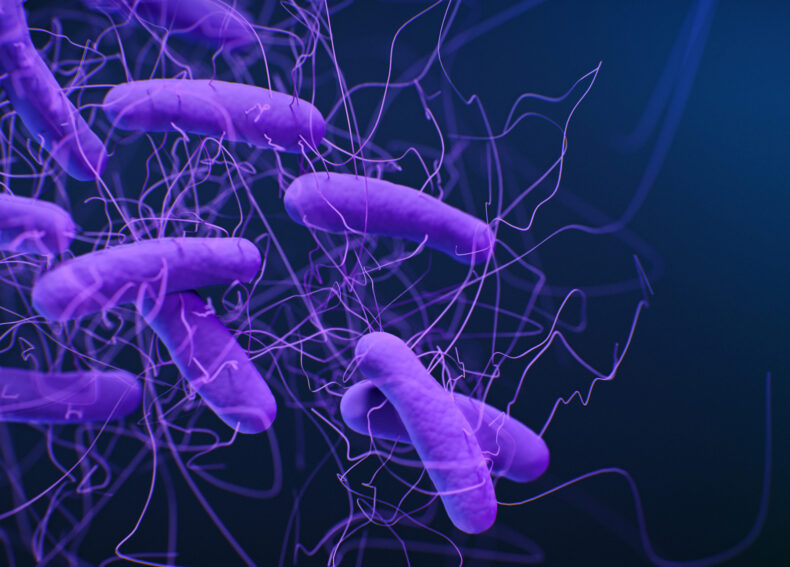
The National Institutes of Health awarded a five-year, $7.85 million grant to Vanderbilt University Medical Center to launch the Vanderbilt Antibody and Antigen Discovery for Clostridioides difficile Vaccines, or VANDy-CdV.
The grant will support a team of over 25 VU and VUMC multidisciplinary researchers to discover novel Clostridioides difficile (C. diff) antigens through genetic and biochemical approaches, as well as test the lead antigens for immunogenicity and protective roles in vivo.
The program’s principal investigators are Borden Lacy, PhD, director of the Vanderbilt Center for Structural Biology and holder of the Nancy and Edward Fody Chair in Pathology, and Eric Skaar, PhD, MPH, director of the Vanderbilt Institute for Infection, Immunology, and Inflammation (VI4) and holder of the Ernest W. Goodpasture Chair in Pathology.
“C. diff is associated with the use of antibiotics and is most commonly seen in elderly adults receiving care in hospitals or living in long-term care facilities,” Lacy said. “A vaccine for this group and similar high-risk populations could have a significant human health impact.”
According to the Centers for Disease Control and Prevention, C. diff causes nearly half a million infections each year, with the risk of infection being up to 10 times more likely while taking antibiotics for unrelated infections.
VANDy-CdV has already begun collecting samples and data thanks to seed money provided by VI4, and Lacy expects a quick start to the program. She hopes that this research will translate to vaccines to protect against C. diff infections and apply to the development of vaccines for other gut pathogens as well.
The grant includes support for four cores: the clinical data and biospecimen repository core led by Maribeth Nicholson, MD, MPH, Isaac P. Thomsen, MD, MSCI, and Buddy Creech, MD, MPH; the protein expression core, led by Ben Spiller, PhD; the single-cell technologies core led by Ivelin Georgiev, PhD; and the small animal core, led by Skaar. Danyvid Olivares-Villagomez, PhD, will assist the program through his T-cell immunology expertise.
“I am very excited about this project and the opportunity to work with this dream team of scientists,” said Lacy.











